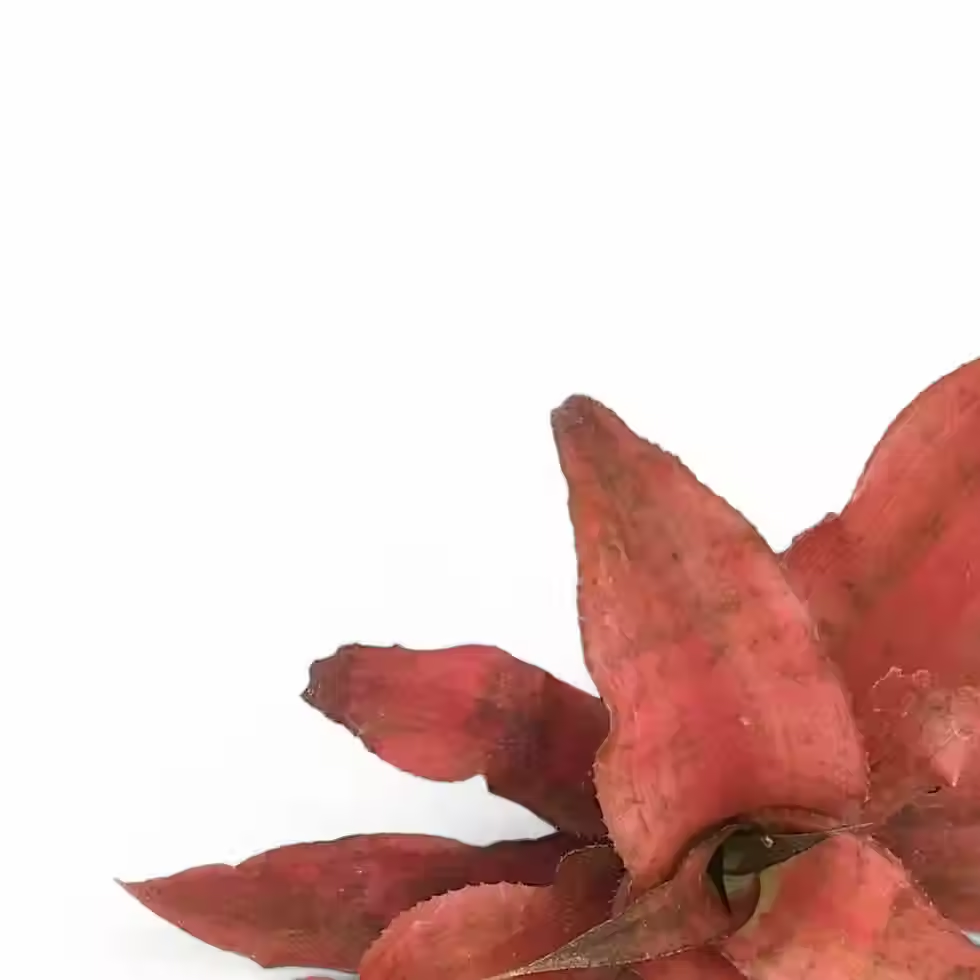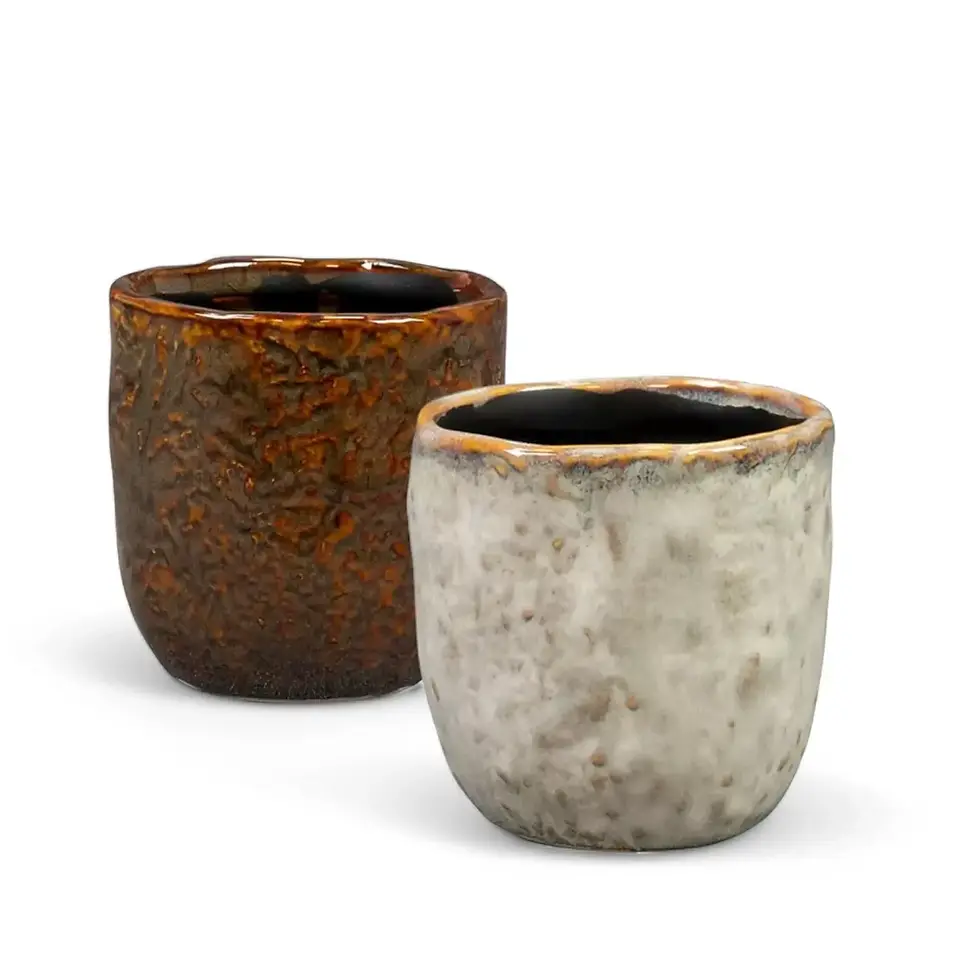Alocasia sinuata - Plant Guide and Growing Tips
Alocasia sinuata stands out with bold, rippled leaves that shimmer under bright light, instantly drawing attention in any indoor space. Native to the Philippines, this unique aroid typically grows to about 30-40 cm high, making it easy to place on side tables or shelves. Known for its thick, leathery foliage and subtle metallic sheen, Alocasia sinuata thrives in stable, warm conditions—perfect for creating a vibrant, tropical vibe at home.
Alocasia sinuata - Distinctive Traits and Benefits
- Rippled Leaf Texture: Deep ridges create a standout, sculptural look.
- Compact Build: Stays under 40 cm tall, ideal for smaller living spaces.
- Moderate Growth Rate: Forms new leaves steadily without overwhelming care needs.
- Rare Indoor Blooms: Sometimes produces a pale spathe and spadix, though not its main attraction.
- Mild Toxicity: Can be irritating if ingested—keep away from pets and children.
Background of Alocasia sinuata
Originating in humid rainforests with temperatures around 20-30°C, Alocasia sinuata grows upright from short rhizomes, producing fresh leaves year-round under ideal conditions. Mimicking its native warm, moist environment indoors will help maintain its eye-catching texture and vivid green color.
How to Care for Alocasia sinuata Indoors
→ Placement
- Position near a bright window with filtered sunlight.
- Avoid harsh, direct sun to prevent foliage damage.
→ Light
- Prefers moderate to strong indirect light for vibrant leaf development.
- Can tolerate lower light but may grow slower.
→ Water
- Let the top 2-3 cm of soil dry before watering again.
- Ensure excess moisture drains to prevent root rot.
→ Humidity
- Aim for levels above 60%.
- Group with other plants or use a humidifier in dry areas.
→ Temperature
- Comfortable range: 18-27°C.
- Avoid cold drafts or sudden temperature fluctuations.
→ Soil
- Use a fast-draining mix with perlite, coconut coir, or orchid bark.
- Good aeration is crucial for healthy roots.
→ Repotting and Pot Choice
- Upsize slightly every 1-2 years, depending on root growth.
- Clay pots allow moisture to evaporate more easily, while plastic retains water longer.
→ Fertilizing
- Feed with a balanced liquid fertilizer at half strength every 2-4 weeks.
- Avoid over-fertilizing to prevent root stress.
→ Propagation
- Divide rhizomes during repotting; each section should have roots and a growth bud.
- Keep fresh divisions warm and lightly moist as they establish.
→ Semi- and Hydroponics
- Adapts well to setups like LECA or pumice.
- Rinse soil off carefully before transitioning the plant to a new medium.
→ Pruning
- Snip off yellow or browning leaves at the base.
- Gently wipe leaves to remove dust and enhance photosynthesis.
Checklist Before You Buy Alocasia sinuata
- Choose a Pot with Drainage: This plant dislikes soggy roots.
- Get a Suitable Substrate: Use a chunky mix with good aeration.
- Assess Your Environment: Needs warm temps, indirect light, and moderate to high humidity.
- Plan Your Placement: Away from direct sun but bright enough for steady growth.
Alocasia sinuata - Common Problems and Solutions
→ Why Are My Alocasia sinuata Leaves Drooping?
Likely caused by erratic watering or sudden temperature changes. Water consistently and avoid cold drafts.
→ Root Rot
Overwatering is the main culprit. Remove affected roots and repot in a fresh, well-draining mix.
→ Leaf Troubles
- Brown Tips: Usually due to low humidity or uneven watering.
- Yellowing: Often caused by waterlogged soil or poor drainage.
→ Pests
- Common pests: Fungus gnats, spider mites, thrips, and mealybugs.
- Treat with neem oil or insecticidal soap. Isolate affected plants to prevent spread.
→ Fungal Issues
- Encouraged by warm, stagnant air and overly wet foliage.
- Improve airflow and ensure leaves dry after watering.
→ Tap Water Sensitivity
Hard water or chlorine may cause brown tips. Let water sit overnight or use a filter.
Additional Tips for Alocasia sinuata
- Stable Warmth: Consistent temperatures foster steady leaf production.
- Dust and Airflow: Wiping leaves keeps them glossy and prevents mold or leaf spots.
- Enhance Indoor Aesthetics: Pair with sleek clay or ceramic pots to highlight the textured leaves.
Etymology
The genus name Alocasia traces back to "Colocasia," reflecting its roots in the aroid family. "Sinuata" comes from the Latin for "wavy," describing its distinctive leaf texture.
Order Now!
Snag your own Alocasia sinuata and enjoy its tropical charm. We offer secure packaging to ensure those rippled, glossy leaves arrive in perfect condition!
Alocasia sinuata
Alocasia sinuata is approximately 20 cm tall and comes in a ⌀ 12 cm pot.

























































